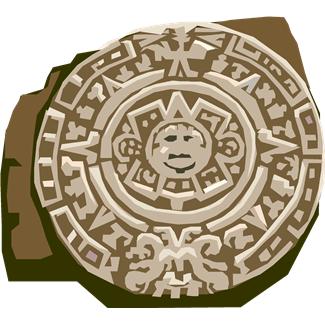
Should the Calendar We Use to Mark Time’s Passage be Changed?
Someone is always trying to fix or reform the calendar we use to keep track of days, weeks, months and years. The latest idea, suggested by a couple of professors at Johns Hopkins University, would radically change not only the days and months of the year but would stand universal time-keeping on its head as well.
The recommended changes would also do calculated damage to the system astrologers use to track the Sun’s travel through the 12 signs of the Zodiac.
The reason why some are motivated or inspired to change or reform the calendar is because the basic natural units of time don’t fit neatly together. The year does not contain a whole number of days; it has 365.2422. The synodic month (the time from one new moon to the next) is not a whole number either: it occurs every 29.53 days. Also, the year doesn’t have a whole number of lunar months — there are 12.37 of them.
There are seven days in a week, but there is not a whole number of weeks in a solar year: 52 weeks come to only 364 days, which is 1.24 days short.
So any calendar using natural units of time must make some needed adjustments. Our own calendar, the Gregorian, adds an extra day every four years (with some exceptions). This means consecutive January 1sts never fall on the same day of the week. Every year has a different layout. And the months are not aligned with the actual lunations (new moons).
Is there a better way? At John Hopkins University astrophysicist Richard Henry and economist Steve Hanke believe we should adopt a calendar that begins every year with January 1 on a Sunday. There would be just 52 weeks in the year totaling 364 days. To remain in step with the solar year, an extra week (seven full days) would be added every five or six years (it varies).
This is one form of a “perpetual calendar,” so called because it’s the same every year (except, of course, for that awkward extra week, which is not added on in a perfectly regular way). What’s gained by simplifying one thing is lost by complicating something else.
Would Approach be Better For Business?
Hanke and Henry argue that their calendar would be better for business because it is more consistent. Everyone would know what day of the week any particular day would fall on, it being the same every year. The professors think this approach would produce economical advantages for everyone. The occasional extra or off schedule week would not be disruptive, they insist.
Perhaps, but not everyone is buying into this idea. It’s one thing for us to adjust to an extra day (as we do now). But how would we handle a full seven day interruption? Would it turn into an official seven day shopping spree? This might be good for business but hard on our pocket book!
But wait, that’s not all. Hanke and Henry also propose that we get rid of time zones. They think everyone should live according to Universal Time (that is, time according to the clock at Greenwich, England). This would mean, for example, that for New York City sunrise would happen on the new clock at about 1100 hours, ”noon” at about 1700 hours and sunset at about 2300 hours.
In most locations around the globe the clock would not be in sync with the sun. Hanke and Henry say we would eventually adjust. And we’d be living in an efficient global framework where there no longer is confusion regarding “what time” it is. We’d all be on the same clock.
It’s reasonable to question whether this approach would be psychologically natural or healthy. A clock time that is just a number is not the same as clock time that is tied to the natural cycle of day and night. It would be like we’re all working in the same world-wide office building; whatever is going on outside, in nature, would not really matter.
Some more questions: Does it matter if our calendar and our clocks become ever more artificial? Is human nature and psychology a part of the larger natural world and essentially connected to the natural rhythms of time? If our timekeeping (by clock and by calendar) becomes disconnected from these natural cycles, do we become disconnected not only from nature but alienated from ourselves as well? Is global efficiency worth all that?
Astrologers and the readers of newspaper horoscope columns would have their own set of issues with the Hanke and Henry reformed calendar. Had the reformed calendar been adopted at the beginning of 2012, the dates for zero Aries for the years 2012 to 2018 would be as follows:

Obviously, the date is the same each year in the Gregorian calendar currently in use. But had we adopted the “reform” calendar, the date would fall back a day every year, until the extra week adjustment. It would then jump forward by five days (in this example). Every year the sign of Aries would begin on a different date, and the same would be true for the other signs as well.
Imagine the confusion! Astrologers would understand that this is merely an artificial effect of the calendar, but the public may not be so forgiving. Presumably, Henry and Hanke did not take birth signs into account when they came up with their recommended changes. But newspaper editors and publishers have opinion polls that tell them how popular daily horoscope columns are with many of their readers. Might the proposed changes cause heads to roll? Would readers riot in the streets? Or might Henry and Hanke be burned in effigy?
Most likely, none of the above. But, almost certainly, the idea would be dead on arrival as far as the general public is concerned.
What Changes Might Astrologers Recommend?
If astrologers were consulted, what would the ideal calendar look like?
It might be nice to have the months line up with the signs. Currently, the change from one astrological sign to the next happens in the third or fourth week of the month, so it might be more convenient for the change to happen on the first of every month. But is this even possible?
The short answer is no. There are many reasons for this, but basically the Sun doesn’t spend a whole number of days in any sign. There is always a partial day that would prevent a one-to-one alignment of months to signs. If we’re to remain in touch with the natural cycles of the year, the month or the day – or the unbroken cycle of the seven day week – there isn’t a choice. We’ll need to make some adjustments.
Even the things we think of as fixed are, in fact, changing. For example, slowly over time, the year is getting shorter while the day and the cycle of the moon are getting longer. Perplexingly, the rate of these variations, and many others astronomers are aware of, are also irregular. So whatever adjustments we put into our calendar today will become invalid sometime in the next few thousand years. We may wish to reform the calendar for the sake of eternal perfection, but perfection will always elude us.
So why not just chuck the whole natural calendar idea?
Hanke and Henry have shown us what a calendar designed to increase efficiencies in the business world would look like, and it’s possible to take this idea even further. We might, for example, create a calendar with only 10 months in the year. Each month would have only three weeks, and each week would be 10 days long. Therefore, the ‘year’ would have only 300 days, so that every shopping holiday would happen much more frequently. The retail industry, especially, would be able to do something special with a format like this. But the astrology lobby, if there were such a thing, would vigorously resist this unnatural calendar as well.
Another possibility calls for getting rid of the calendar altogether. Instead, days would be numbered consecutively in an unbroken sequence. There would be no weeks, months, years or time zones. And no hours, either. Instead, decimals would do.
Effectively, this is just what the Julian Date does. Developed for astronomical use, it counts days from January 1, 4713 BC, starting with day zero at Greenwich mean noon on that day. So January 1, 2012 at noon is day 2455928.00. A quarter of a day would be 0.25 instead of 6 hours, half a day would be 0.5, and so on. That’s all one would need to know to be exactly on time.
What could be simpler or more universal, you ask?
Perhaps we should be asking ourselves what is the calendar really for? Do we really want to live with abstract numbers and decimal points, or do we need something that makes human sense? The simple answer is human beings appear to have adapted rather nicely to the familiar but raggedly uneven weeks, months and years we‘ve been journeying with for centuries. We may even need the irregularities of time in the same way we need the irregularities of life itself.
Further Reading
Online:
Time for a change? Scholars say calendar needs serious overhaul
Changing Times | Steve H. Hanke and Richard Conn Henry | Cato Institute: Commentary
Books:
Duncan, David Ewing, Calendar, Humanity’s Epic Struggle to Determine a True and Accurate Year, Avon Books, 1998.
McCready, Stuart, ed., The Discovery of Time, Sourcebooks, Inc., 2001.
Richards, E. G., Mapping Time, The Calendar and its History, Oxford University Press, 1998.
Steel, Duncan, Marking Time, The Epic Quest to Invent the Perfect Calendar, John Wiley & Sons, Inc., 2000.
Ron
Category:
Opinion Tags: astrology, England, Greenwich, Gregorian calendar, Richard Henry, signs of the Zodiac, Steve Hanke, time zones, units of time, Zodiac
